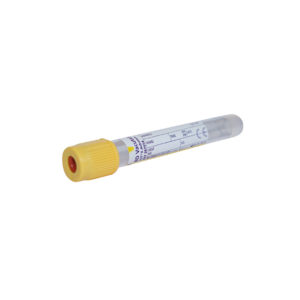At the beginning of the year, South West London Pathology (SWLP) was delighted to award a major clinical blood sciences (CBS) contract for all SWLP sites to global leader in clinical diagnostics Beckman Coulter.
Coeliac antibodies
| Category | Immunology and PRU |
|---|---|
| Reporting frequency | 5 working days |
Additional information
Testing requirements:
One tube of clotted blood.
Patients must be on a gluten-containing diet, ideally for at least 6 weeks prior to testing, to avoid false-negative results.
Test utility:
Coeliac antibody tests are useful for diagnosis of coeliac disease.
Coeliac antibody tests should not be used alone to assess adherence to gluten-free diet (NICE guidance 2015).
Laboratory test information:
| Test | Frequency | Turnaround time (working days) | Clinical sensitivity* | Clinical specificity* |
| IgA anti-TTG | Daily | 5 | Children: 91% (85-95) Adults: 96% (93-99) |
Children: 86% (78-91) Adults: 91% (90-92) |
| IgA anti-endomysial antibodies | Daily | 5 | Children: 97% (94-99) Adults: 85% (78-90) |
Children: 76% (67-83) Adults: 98% (98-99) |
| IgG anti-TTG antibodies | Daily | 5 | No data | No data |
| IgG anti-endomysial antibodies | Daily | 5 | No data | No data |
*From NICE guidance, based on published literature (mean + 95% confidence intervals)
Testing pathway:
All requests for coeliac antibodies will be tested for IgA anti-TTG antibodies.
Patients that are IgA-deficient are detected by a low background signal on the analyser and the laboratory will automatically confirm the total IgA concentration and test for IgG antibodies to TTG and to endomysium, in line with NICE guidance.
In certain circumstances, it may be helpful to test for HLA DQ2 and HLA DQ8. Coeliac disease rarely occurs in individuals who do not have these HLA types. Please contact Haematology if this testing is required.
Test results:
Positive antibody results are consistent with coeliac disease. However, further testing may be required to confirm this diagnosis eg duodenal biopsy. Patients must be on a gluten-containing diet when these further tests are done.
Negative antibody results are not suggestive of coeliac disease, as long as the patient has been on a gluten-containing diet for at least six weeks.
Coeliac disease: An autoimmune condition where gut inflammation is triggered by eating gluten-containing foods in susceptible individuals. Symptoms include abdominal discomfort, bloating, constipation or diarrhoea. Symptoms may also arise secondary to impaired absorption of nutrients in the gut. Rarely, an itchy rash may be seen on extensor surfaces eg elbows, knees, called dermatitis herpetiformis. Symptoms usually resolve if gluten is excluded from the diet.
Guidelines and further information:
- NICE NG20: Coeliac disease: Recognition, Assessment & Management (2015)
- ESPGHAN 2020
- Labtests Online
External laboratories:
To refer samples for testing, please send at least 1ml serum to:
Protein Reference Unit, South West London Pathology, St George’s Hospital, Tooting SW17 0QT.
For prices and other enquiries, please contact the Immunology Manager: aimee.rhodes@nhs.net.
Lab Tests Online UK
Lab Tests Online - UK is a website written by practising laboratory doctors and scientists to help you understand the many clinical laboratory tests that are used in diagnosis, monitoring and treatment of disease.
- Search Tests

